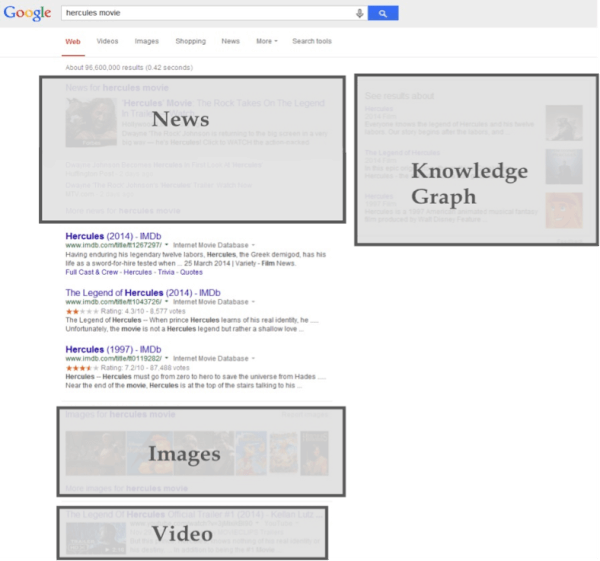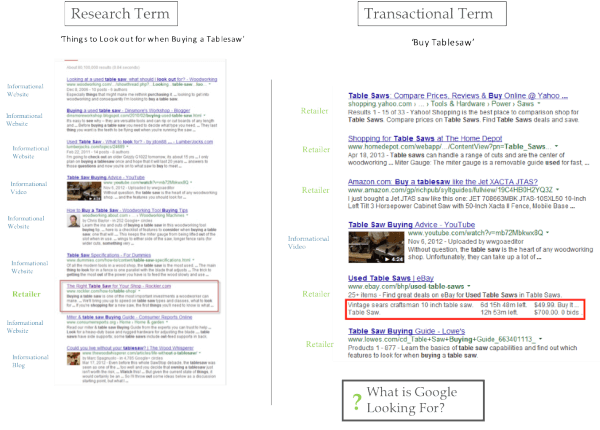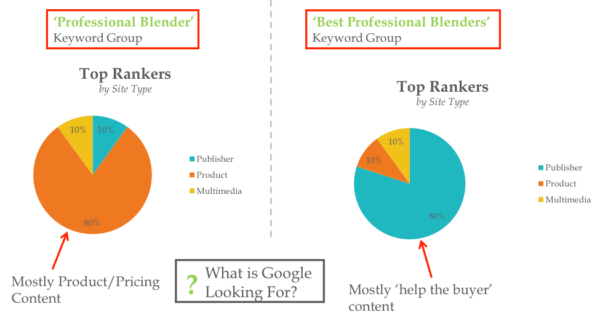Why It’s Good To Compete With Google
If you talk to a room full of veteran digital marketers, a topic that eventually comes up is competition — specifically, the fact that our competition in search is often not immediately obvious. You can miss out on understanding your online competition for a few different reasons. For example, marketers sometimes erroneously assume that brick-and-mortar […]
If you talk to a room full of veteran digital marketers, a topic that eventually comes up is competition — specifically, the fact that our competition in search is often not immediately obvious.
You can miss out on understanding your online competition for a few different reasons. For example, marketers sometimes erroneously assume that brick-and-mortar competitors are the same as online competitors. Sometimes, your site might end up competing with publications in SERPs, even if you’re a retailer or B2B. Sometimes, the competition is right under your nose, and you don’t even realize it.
Google Is Your Competition
The truth is, when it comes to competition in search, we are not in competition with whichever firm is selling what we are selling. We are in competition with any entity that competes with us for valuable real estate in the search results.
Increasingly, that means Google.
It seems daunting to compete with Google; but, it is possible. To do it well, it is crucial that we:
- Know where digital assets appear in the SERPs
- Optimize our assets to appear in the SERPs
Learn To Compete Over Searcher Intent
Compare the two search results pages below. (Click the image to see a larger version.)
The query on the left is a “research” term, meaning that the intent of the searcher is to learn more rather than to immediately buy. For the query [Things to Look Out for when Buying a Tablesaw], Google is surfacing informational pages about table saws to provide the searcher with material to satisfy their research.
Compare that to the search results page on the right for the transactional query [Buy Tablesaw]. We can see that Google is overwhelmingly surfacing retailers. Google is showing transactional pages. That’s even more obvious when we notice the presence of pricing information in the rich snippet (red box).
Here’s what you need to know: Google is looking for a very specific type of content that is aligned with searcher intent. You’re competing with other results that Google sees as serving similar intents. If we are not aligned with that thinking, we drastically reduce our chances of success in the search results.
Use Searcher Intent To Your Advantage
Taking this thinking a step further, imagine if you collected several groups of similar keywords and used your favorite rank tracker to aggregate the top ranking pages by content type. This analysis might produce insights like those demonstrated below.
As you can see, Google overwhelmingly surfaces product and pricing content for “professional blender” keywords, whereas the “best professional blenders” keyword group largely surfaces publishers with informational content.
You have to be able to answer the question, “What is Google looking for?” before you (or your content team) begin creating your website content. This should enable you to create the kind of content Google will surface for the queries that matter to you.
Learn To Be Agile In Your Search Strategy
When it comes to online competition, Google is making up the game as it goes along. It pays to be paying attention and to be able to notice changes and respond quickly. Keep a careful eye on your metrics, your market share and the state of the SERPs.
For now, keep in mind that though Google defines the specific URLs that appear in the search results, it also defines the types of content that it surfaces based on their interpretation of the query.
Understanding and responding appropriately to the type of content Google surfaces in the search results will vastly improve your odds of success in the search results.
Contributing authors are invited to create content for Search Engine Land and are chosen for their expertise and contribution to the search community. Our contributors work under the oversight of the editorial staff and contributions are checked for quality and relevance to our readers. The opinions they express are their own.
Related stories
New on Search Engine Land


